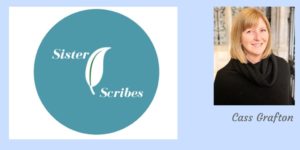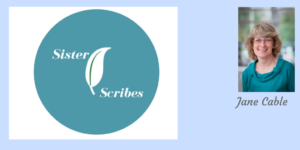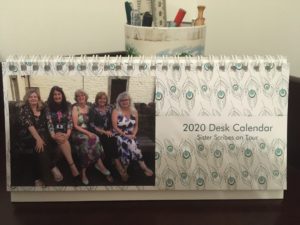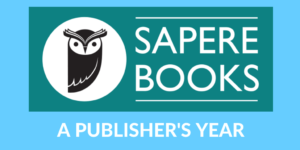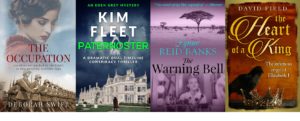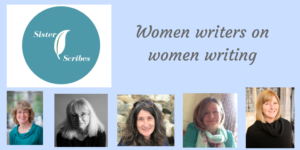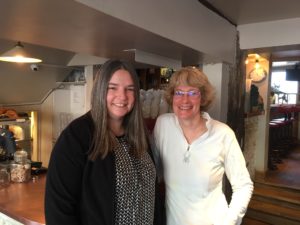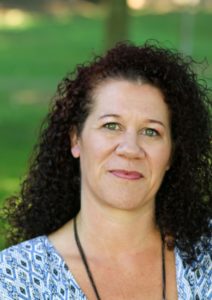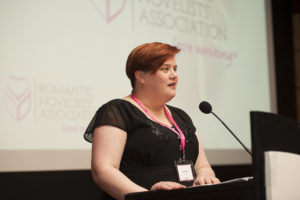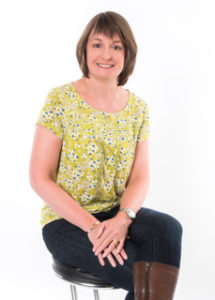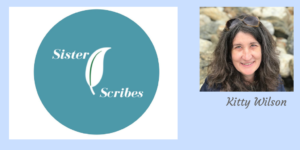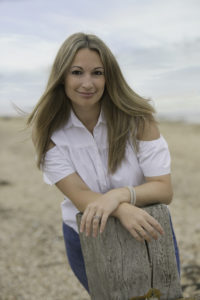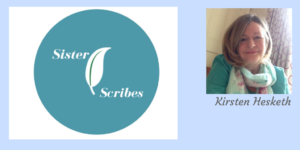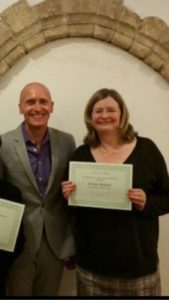Anxiety and the pressures of modern life seem to go hand-in-hand, with many describing the crippling condition as a ‘21st century epidemic’. Author Steven Romain is no stranger to anxiety and has drawn upon his own experiences of the illness for his new literary novel, True-Life Walter, which features a central character who takes radical action to rid himself of anxiety, and by so doing also finds himself freed for the first time from the oppressive burden of social expectation.
By Steven Romain
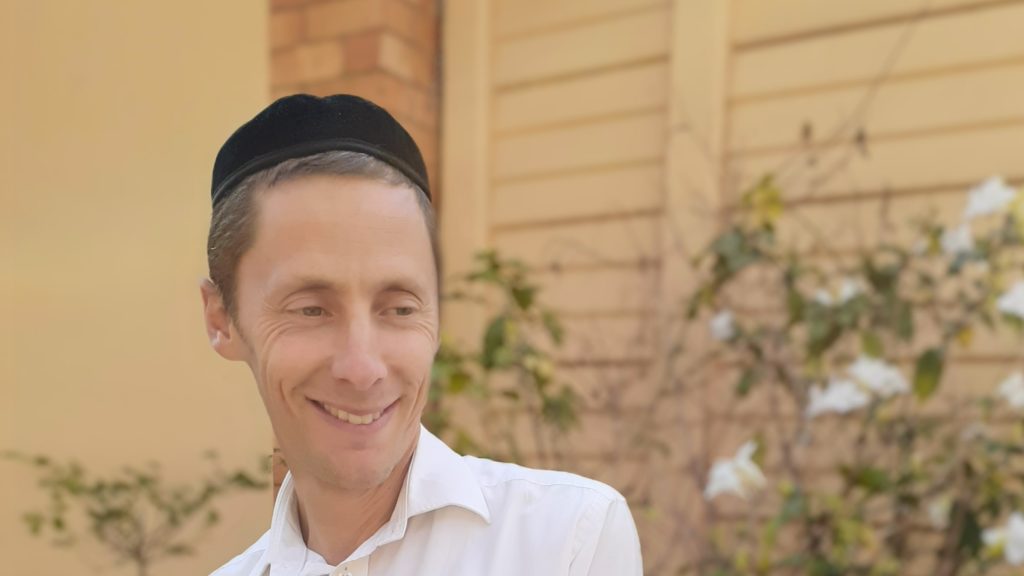
Caption: Author Steven Romain believes that anxiety is deeply connected to the confining expectations thrust upon us in the 21st century. Copyright Steven Romain 2019
The only people whose ideas about anxiety should be listened to are those who actually experience it. Like a wild dog, anxiety has a particular nature, conducts itself in specific ways, and is even characterised by unusually acute powers. A wild dog hears the heartbeats of a herd of springbok from a hundred metres away and selects the buck with the weakest heartbeat as his target. They have a ninety percent success rate as hunters.
The complication with being human is that the definition of success eludes our grasp. If those walking around the world with anxiety are impaired in certain ways, and we may safely say they are, they are also gifted with special powers like artistic sensitivity; a highly suggestive imagination; and empathy. In addition, the fact of living with the condition for many years fosters wonderful species of fortitude and bravery. It is impossible for a non-sufferer to know what I mean, but it is a fact that simply getting up in the morning and dressing is, for many people, a great achievement. It’s very much like escaping from the captivity of a sadistic bandit.
The anxiety-sufferer wrestles with his angel from the moment he wakes up in the morning till the moment he falls asleep at night. To me, (especially since I am one of the club), it’s clear that this battle forges a person’s personality to a tremendous degree. And this brings us back to the question of defining a successful hunt for human beings. Who among us is living a successful life?
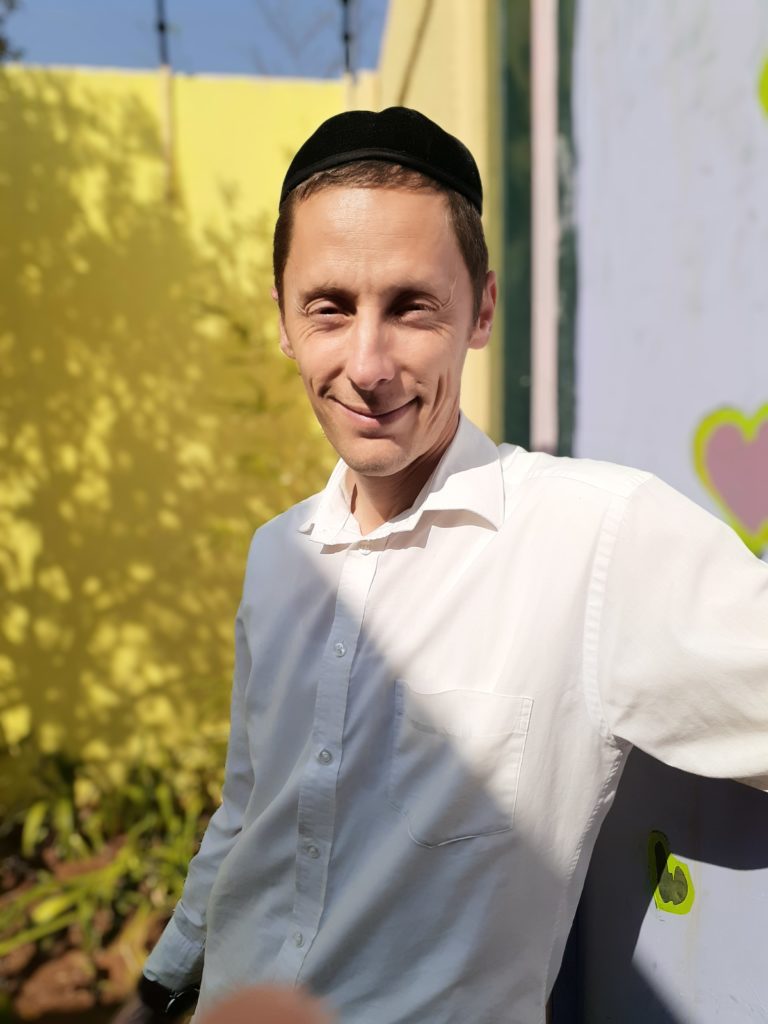
Caption: Author Steven Romain, an ordained rabbi, draws strength from his faith to make sense of an increasingly chaotic and superficial world. Copyright Steven Romain 2019
Many might point to the socially adjusted, the financially successful, the intelligent, or the famous. All these I would characterize as effective in some way. I, for my part, see something wrong with this view. Look around you at the world: stars, galaxies, electrons, insects, fire, water, ice, elephants—not to mention dreams, visions and spirits. This is a world which is marvelously complex and mystical, held to together inexplicably by The Holy One. And the crown of it is man, but what was he put here for? To become something, to know his Creator, in my opinion, but the point I wish to make is that G-d didn’t make this wonderfully interconnected world so that there should be people sitting at coffee-shops punching buttons on phones. This can be a pleasant pastime and I don’t mean to sound harsh, but I do think the question of ‘What was I put here to do?’ should be one that is considered in relation to our actual lives and not just pondered theoretically. Effective people can’t be the point of the whole world, for the reason that their effectivity only solves problems, and the Creator did not make the world to solve a problem, since He has none.
If you agree with me that dressing in the morning might be a genuine achievement, you probably also agree with me that succeeding in school, university, socially, romantically, or spiritually do not necessarily make for real achievement. Just a little bit of thought suffices to prove this. Each one of the items on this list is naturally easy for thousands of people, making for little challenge, and for thousands of others an apparent success in one of these areas would really be a failure. Take, for example, someone whose life circumstances are such that academic achievement is inappropriate for him. He has a pressing need to earn money. His graduation seals a four-year-long (and costly) wrong choice.
A man is a very mysterious thing. Take a fresh look at him: what is he? He is made, in the sense that his powers and faculties are determined by his Creator, but he also makes himself. A very awkward man I know chose, in his youth, to devote himself to a kind of social work that entails mingling closely with tens of teenagers every day. Now, after years of habituation, no one could ever imagine him as anything else. It is what he is. And it came about purely from his choice. Plus, we all know that after the little dance we do on this earth we’ll be sailing away to a totally different place. The question that I’m proposing should at least seem like a question is: what is the dance I should do while I’m still here? The question should be asked again and again, day after day, because many of the answers we give might be straight-out wrong. There’s no point in just following everyone else’s answers: that would be like frantically neatening up an office the whole day, vacuuming and straightening and polishing, when the whole building is set for demolition.
A man like me wakes up this morning and faces the familiar forms of his anxiety, like an old enemy standing over his bed, waiting for him. Who is to say what it means—in this fantastically mysterious world—that he manages to put on his shirt, his pants, his shoes, drink a cup of coffee and drive to the supermarket? Maybe, as a result, it will rain on farms in Kenya. Maybe, when he leaves this world in his old age, the angels will tell him that the dance he did down here was just perfect: the heavenly hosts were cheering him on for every move. And maybe a man who is sentimentally eulogized as the greatest benefactor of mankind in his generation, a lifelong philanthropist, is told by the angels, on his departure from this world, that his life was a dismal failure. A totally different dance was expected of him.
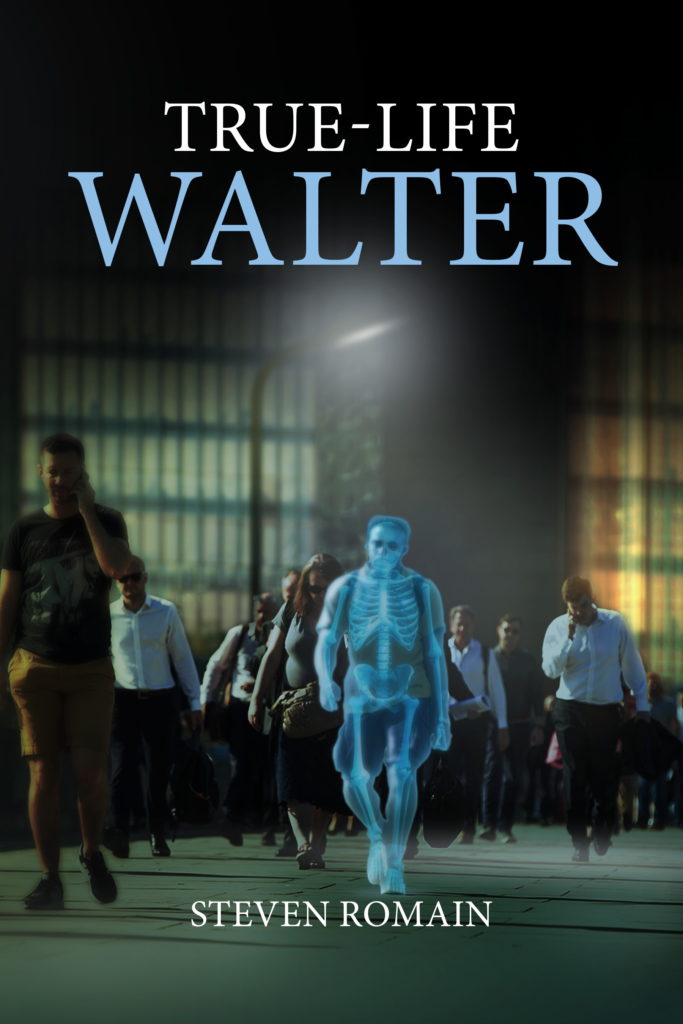
Caption: Steven Romain’s new literary novel True-Life Walter features a central character suffering from extreme anxiety. His actions to free himself from the condition, and what follows, elucidate the deeper meanings of identity and purpose in post-Apartheid South African society. Copyright Steven Romain 2019
The relationship between anxiety and the crisis of identity in our age, in which many of us are divorced, for certain reasons, from our real purpose, is too complex to deal with in a short article. Like everything in G-d’s world, anxiety is not only one thing. The Divine wisdom manifests through it in many different ways. But it is worth noting that, through anxiety, we disable our own lives in their futile rush toward vain ends. We are forced to re-evaluate what we are and what we want to be.
In my novel, True-Life Walter, I explore modern anxiety by depicting it in the setting of modern Johannesburg, where, for men of colour like my protagonist, new identity is built every day. New lives are lived in newly discovered social and economic statuses. New possibilities of achievement dawn all the time: identities shift and change. As does any writer who strives for real art, I strive to render the suchness of anxiety in modern life without reducing it to easy tropes and explanations. In this way, literature has a unique power in assisting our understanding of anxiety, which is, at this point, an issue we need to take strides toward, not so much comprehending, as appreciating.
True-Life Walter by Steven Romain is available on Amazon priced £3.47 in paperback and £2.46 as an eBook.
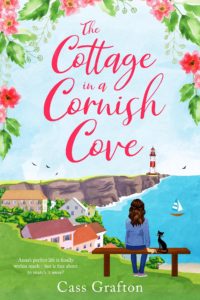 I’ve been toying with the idea behind The Cottage in a Cornish Cove since the days when my hair was a box-shaped perm, my shoulder pads needed scaffolding to support them and keeping in touch with non-local friends was done by a landline phone or with good old pen and paper.
I’ve been toying with the idea behind The Cottage in a Cornish Cove since the days when my hair was a box-shaped perm, my shoulder pads needed scaffolding to support them and keeping in touch with non-local friends was done by a landline phone or with good old pen and paper.
